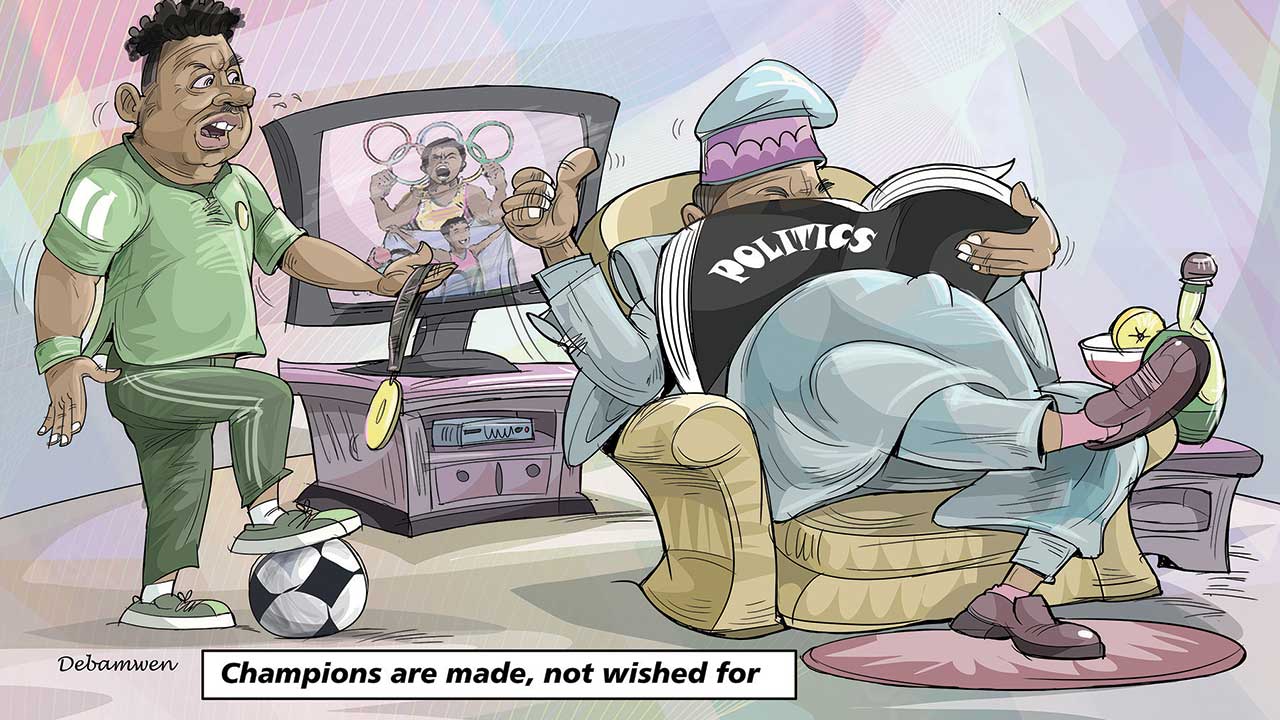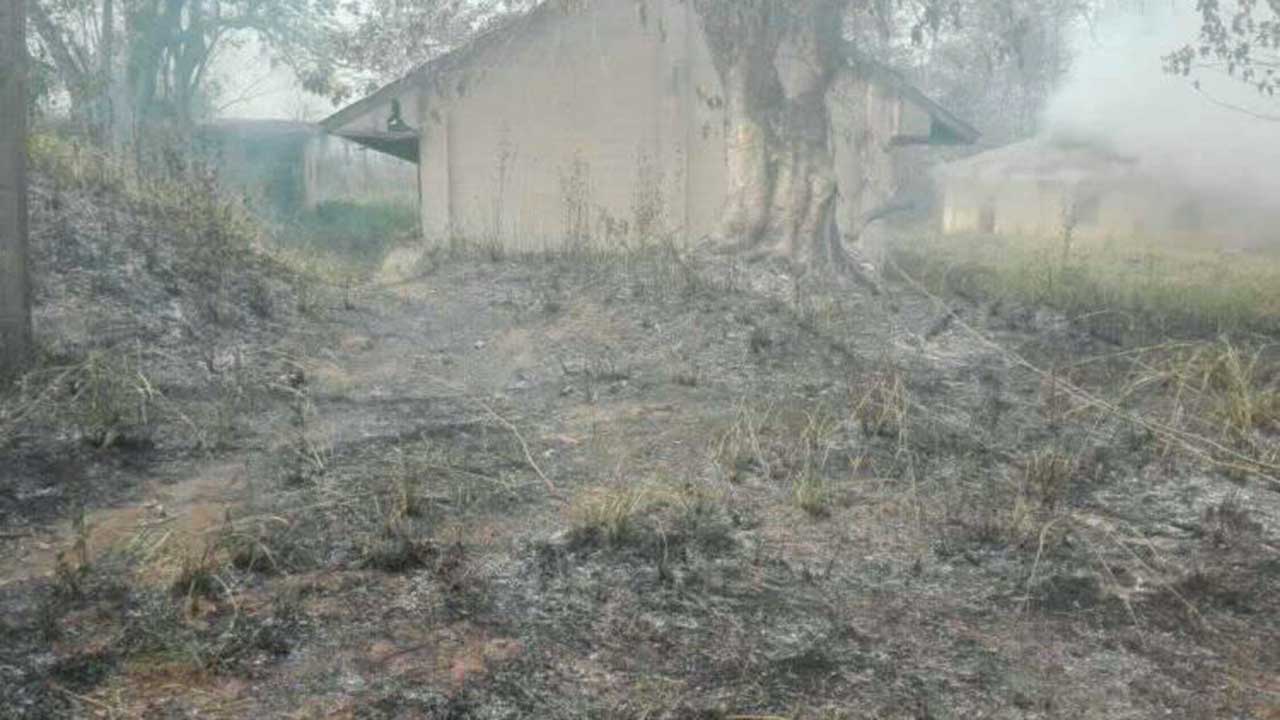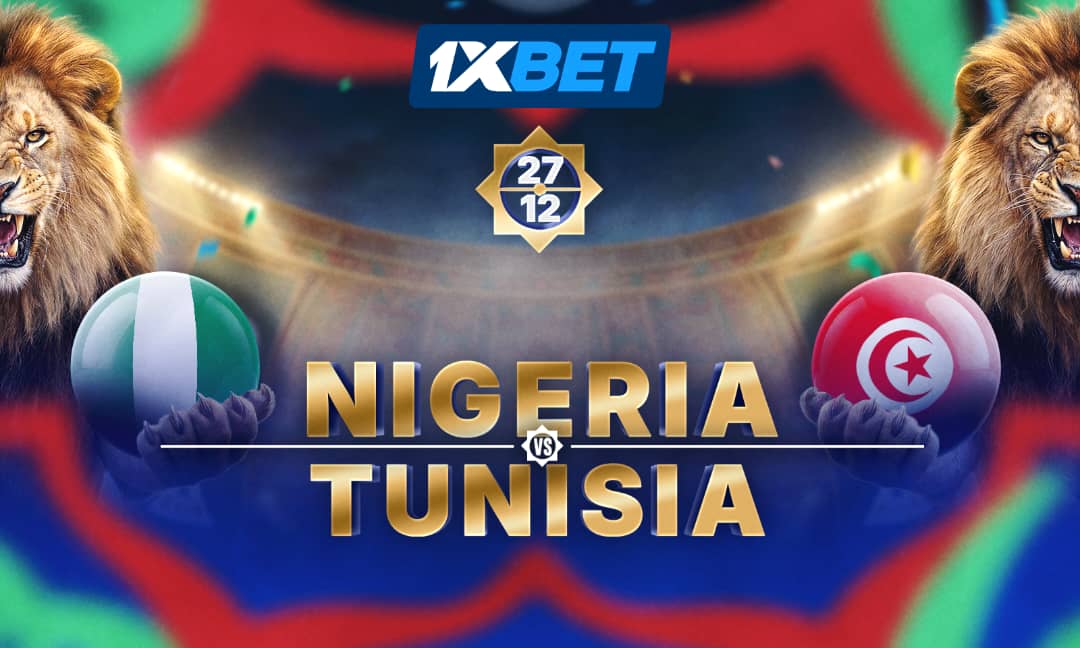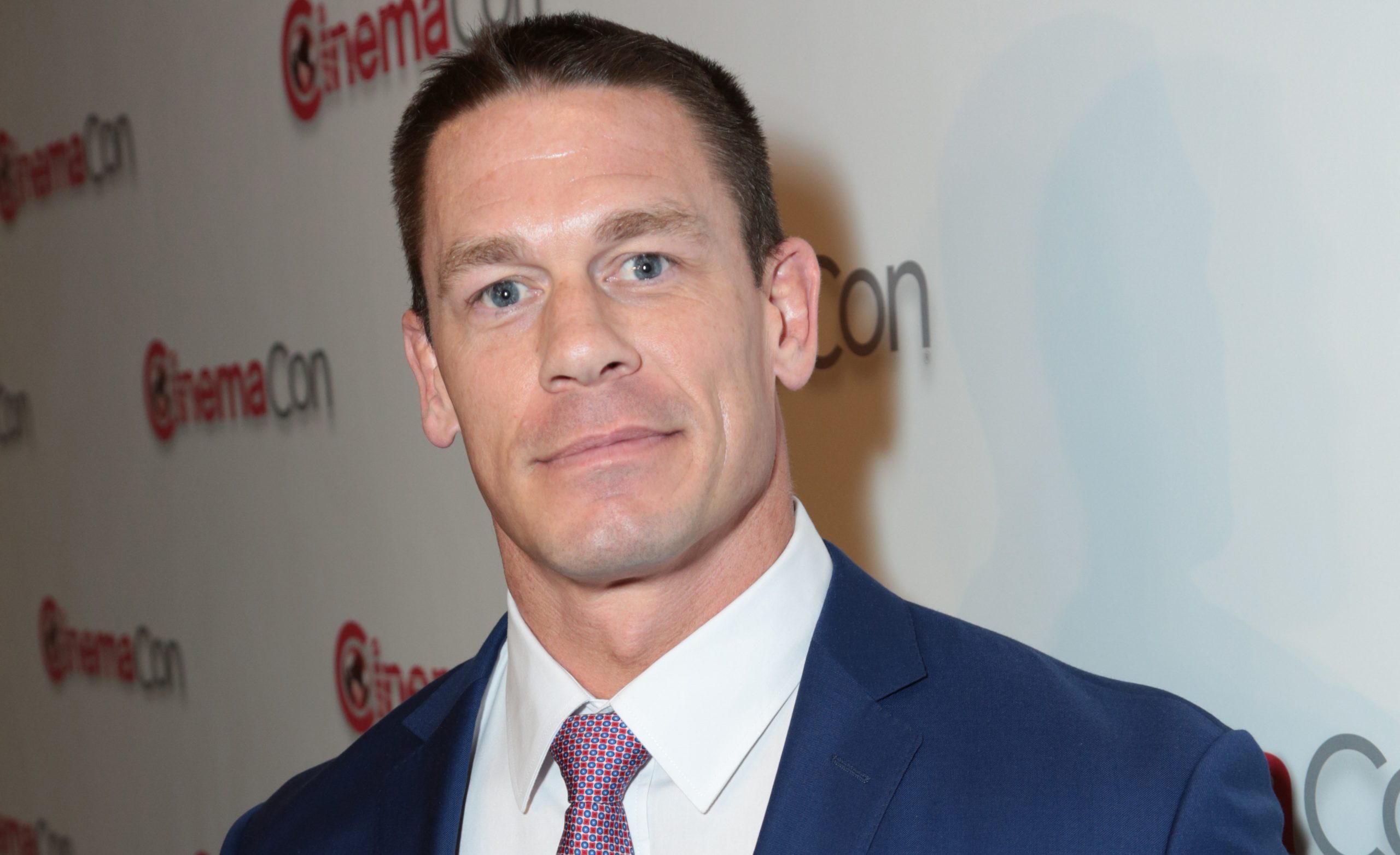 Nigeria is teetering on the brink and risks non-qualification for the 2026 FIFA World Cup, after a disastrous outing at the Paris 2024 Olympic Games. The country’s stark failure to make her 70 per cent youthful population count in sporting circles is both distressing and concerning. But with the abundance of human resources, stakeholders are upbeat that the massive revamping of moribund sports facilities and creating new ones; resuscitating school and grassroots sports, taking seriously the task of nourishing nascent sports talents, funding sustainable sports development programmes, and generally leveraging the youth population will yet again translate into greatness in sports, CHRISTIAN OKPARA writes.
Nigeria is teetering on the brink and risks non-qualification for the 2026 FIFA World Cup, after a disastrous outing at the Paris 2024 Olympic Games. The country’s stark failure to make her 70 per cent youthful population count in sporting circles is both distressing and concerning. But with the abundance of human resources, stakeholders are upbeat that the massive revamping of moribund sports facilities and creating new ones; resuscitating school and grassroots sports, taking seriously the task of nourishing nascent sports talents, funding sustainable sports development programmes, and generally leveraging the youth population will yet again translate into greatness in sports, CHRISTIAN OKPARA writes.
Towering at an enviable height of 6ft, 3 inches, Ikenna Emerie, a hunk and fitness buff, whose daily aerobics routine is done religiously, despite being energy-sapping, is a father of three boys.
At 12, 14, and 16, the boys have given indications that they would outdo their parents height-wise. With fledgling biceps and triceps from their passive participation in aerobics, their father wished that they played sports to maximise their physical disposition. But since they started attending schools, they have been unlucky to attend the ones where concrete and wood largely make up the environment.
“It is because some of the best schools in our neighbourhood practically have no provision for serious sporting facilities as the spaces are all built up. Since we could not sacrifice academic excellence for sports, and cannot also send them to far schools because of the high transportation cost to and fro, something must just give way,” he lamented.
Across many locations in the country, parents like the Emeries have had to sacrifice sports at the altar of education whenever both clash. No thanks to increased urbanisation that has forced educational institutions with no space for sporting activities to continue sprouting up in urban centres.
While Emerie is bemoaning the fate that has befallen his children, 80-year-old retired footballer, Osarieme Bazuaye, said that he became interested in sports in the 1950s because the country had many sports facilities across the regions, adding that the Europeans made sports enticing to the youth of his era.
Recalling his advent into sports, Bazuaye said: “My late father was a keen cricketer, who was a regular member of the Kaduna European cricket team. I occasionally accompanied him to the Kaduna Racecourse during practice and competitive matches. That was how I gained interest in cricket.
When I was at Edo College, every student was made to feature in all the sports and then settle for the ones he had mastered. No student went through that school without playing one sport or another. It was like that in most schools across the country.”
He added: “In those days, if you were in the school team, you had a pride of place among your peers. I was a pioneer player of the Midwest Academicals in 1964. We played in the Sir Manuwa Cup in Lagos, and my colleagues then were the late Adedoyin, Muyiwa Oshode; Manuwa Adebajo; Tunde Disu, and others. I left Edo College for CMS Grammar School, Bariga, the mother of all schools, for my higher school, and I played for Lagos Academicals in 1965/66 alongside Adedoyin. The late Ishola Folorunso was my team manager. I later joined ECN, where I played alongside the late Paul Hamilton, Sebastine Brodericks Imasuen (our captain), Inua Rigogo, Omeokachie, and Amusa Shittu, but I just spent a year in ECN before my father insisted that I must go back to school.”
He attributed the country’s decline in sports to the neglect of grassroots development and the effects of the division of the country into malfunctioning parts.
“There is money in sports now and we must get the facilities, the competitions, and the system right to build a virile sports economy. After oil and technology, sports is the highest-paying profession. You can see what these children earn playing football in Europe… In the past, we were at par with the Americans and Jamaicans in athletics and cricket, with Australia. But all these countries are far ahead of us. So, we should bring back school sports to recapture our glory,” Bazuaye stated.

The increased emergence of schools without sporting facilities, governments’ increasing lackadaisical attitude towards school sports, and the absence of sustainable sports development efforts have had dire implications on the country’s sporting fortunes.
Happening in a country that has the largest youth population in the world, and a median age of 18.1 years, with about 70 per cent of the population being under 30, and 42 per cent being under the age of 15 is both concerning and distressing.
Former president of South Africa, Nelson Mandela, once said that sports have the power to change the lives of the youths, especially as it speaks to them in a language that they understand, create hope, and also unite in a way that little else does.
In Nigeria, it is generally believed that sports are the only aspect of the national life that unites the people no matter their class, religion, or tribe. Experts also believe that sports, more than other sectors, after oil, have the highest capacity to turn the economic fortune of the country.
In his paper, ‘Why Sport for Development is an Effective Tool in Tackling Youth Development Issues,’ published by medium.com, a Global Health Corps fellow at The Grassroots Project in Washington, D.C., Inran Nadaph, stated that its very nature, sport encourages participation, bridging national, ethnic, social and religious divides.
He said: “Sport for development aspires to achieve social impact by using play and physical activity. Alongside its importance in the field of education, sports can also serve as a tool in areas of health promotion, HIV prevention, gender equality, violence prevention, conflict resolution, good governance, inclusion, and environment all of which are prime issues concerning young people today.
“My personal experience working on a holistic sports education programme partnering with schools and neighbourhood communities has shown how being physically active regularly significantly lowers the risk of non-communicable diseases (NCDs). By equipping school and community leaders and educators with the tools to create an active learning environment, such programmes improve the health of children, adolescents, and adults and promote lifelong wellness.”
When utilised correctly, sports enhance self-esteem and self-confidence and promote responsible behaviour, he said, adding, “By taking part in sports, children and young people learn to manage victory as well as defeat. They acquire life skills that help them deal with challenging situations and improve their long-term prospects.”
According to experts, having the largest population of youths in the world and a median age of 18.1 years, with about 70 per cent of the population being under 30, and 42 per cent under the age of 15 simply means that Nigeria has great potential in human resources, which can be transformed and channelled into ventures that would make the country great.
Globally, sports is one of the areas where countries have found routes to new jobs and wealth for the youths. For instance, the National Basketball Association (NBA) league, boxing, athletics, ice hockey, baseball, American football, and the new sport, breakdancing, account for a large percentage of the new rich Americans, who have leveraged their talents to rise above poverty.
Such world-renowned basketballers as Lebron James, Steph Curry, Bam Adebayo, and the Antetekounpo brothers (Thanasias and Kostas) have become millionaires by exploiting their talent in an organized environment.
The English Premier League and other European football competitions are littered with stories of hitherto poor kids, who transformed the lives of their families using their talents in football.
Among these new rich athletes are Nigerians or players of Nigerian descent, who were helped to develop their talents to a profit-yielding level by the environment provided by their host countries.
Sadly, however, while these children in Europe and the Americas are leveraging their talents for the benefit of their families and their countries, Nigerian youths are left to wander into unprofitable ventures like cyber fraud, money rituals, and dependence on sports betting and gambling with the hope of making big money.
The idle mind is the devil’s workshop, they say, and so many Nigerian youths, who would have leveraged their talents in sports to make a living, are forced into things that were taboo in the olden days.
In the early post-independence days up to the late 1990s, Nigerian youths often occupied their time playing football on the streets and other empty spaces, table tennis, basketball, and other sporting activities.
This was possible because there was a system that encouraged mass participation in sports, just as there were many conventional and unconventional facilities across the cities and villages of the country. These sporting activities invariably deviate the attention of these youths from vices peculiar to their age.
However, since these ad hoc facilities are no longer available to the youths and there are no programmes to help channel their energy to sports, most of them have now found solace, some inadvertently, in other endeavours like advanced fee fraud, kidnapping, and money rituals.
Ignored red flags fetching Nigeria misery, shame
NIGERIA recently returned from the Paris 2024 Olympic Games without winning a medal despite all the money pumped into the Games by the Federal Government.
After the Games, many saw the World Athletics Youth Championships as an avenue to raise future Olympic champions for the country. But rather than the outing heralding the birth of Nigeria’s future torchbearers, it was the same tale of frustration and gnashing of teeth as the Paris Olympic Games. The Nigerian contingent to the competition held in Lima, Peru, also returned home empty-handed thereby heightening fears that even the future does not hold any hope of a better fate for the country.
Emerie, a local school sports champion in the South-East in the 1970s is emphatic that governments deserve opprobrium for superintending over societies that its sporting facilities have become obsolete and not fit for purpose.
“I took an active part in school sports in the 1970s and represented my local school for years in the old Anambra State, which later became Anambra and Imo States, but my parents did not see any future for me in sporting circles. Conversely, when I started having my kids, though late for a man, I saw a future for them in sports, but prevailing conditions have scuttled all that. But truth be said, if Nigeria wants to regain lost glory in sports, the surest way to go is the revival of school sports, which must be made compulsory.”

Emerie’s thoughts align with those of Senator Benedict Murray-Bruce, who represented the Bayelsa East Senatorial District, in Bayelsa State, between June 9, 2015, and June 9, 2019.
Murray-Bruce, the Founder of Silverbird Group in his Commonsense Series in the wake of the Paris 2024 Olympic Games said: “The best athletes globally are discovered in primary and secondary schools, where they are nurtured and groomed.
However, in Nigeria, we’ve abandoned this crucial foundation. Remember the iconic Grier Athletics Competition, the Triangular Games, and the Principal’s Cup. These events unearthed legends like Steven Keshi and Henry Nwosu. What happened to them? Why have we scrapped these vital platforms for the discovery of young talents?
On who should be blamed for the country’s dwindling fortunes, the politician and entrepreneur and politician said: “The truth is that the blame lies squarely with our states and federal ministries of education. They have failed to make sports a compulsory extra-curricular activity in primary and secondary schools. This oversight stifles our sporting growth. To revive our sporting fortunes, we must re-introduce sports competitions in schools, invest in grassroots sports infrastructure, provide training for coaches and athletes, and encourage public-private partnerships for sports development. Let’s learn from our mistakes and revitalise our sporting system. Our youths deserve the chance to shine on the global stage.”
Proliferation of private schools, neglect of grassroots development, govts’ insensitivity complicating matters
A former Director of Sports, at Loyola Jesuit College, Abuja, Theodore Chukwuemeka, said that the dominance of private schools in Nigeria’s education system has contributed to the country’s inability to harness its enormous youth population for sports.
According to Chukwuemeka, during the colonial days when schools were run by the government and missionaries, sport activities were compulsory in schools and access to these schools was open to every Nigerian child. “But that is no longer the case now. Many parents prefer to send their wards to private schools, some of which do not have facilities for sports. To become a great sporting nation, you must catch the athletes at a very young age. But you find out that in today’s Nigeria, many schools do not have basic facilities for sports.
“Some school administrators don’t have time for sports and see no reason why students should be doing sports instead of reading their books. In such a situation, there is no way of knowing, or discovering children with special sports talent. In the past, school administrators went out to recruit talented children into their schools because of the prestige the schools earned in such competitions as the Principals Cup and inter-school competitions. That was the era when we had students representing the country in big international competitions. Then, every child dreamt of going to school because of the fame, and at times, scholarships that they would get with their talent. All these have gone.”
He also blamed some parents for their children’s apathy towards sports, adding that many of them dissuade their wards from taking to sports even now that it has become a big money-making industry.
“Public schools, which still have sports facilities and time for sporting activities are no longer attractive to parents because of the poor standard of teaching that the schools are associated with. Only a few private schools have facilities for sports and most of them are out of reach of children from poor homes. And you know, only a few children from rich families rarely take to sports. At Loyola Jesuit School, one of our patrons, Wale Babalakin, instituted a scholar/sports award, which rewards outstanding graduating students in academics and sports. This is rare because parents no longer push their wards to harness their talents.
For a former African table tennis champion, Atanda Musa, Nigeria lost its ability to harness its great youth population for sports development when the nation deviated from the system that ensured children had access to playgrounds.
According to the former Commonwealth champion, Nigeria will continue to fail in international sports until it starts providing the environment for the youths to play and hone their skills in the various sports disciplines. He said: “These days, children don’t have anywhere to play and learn games. There are no playgrounds and the clubs where the children can play are exclusive to members’ children only. During my time, the military was in charge and because they love sports, they built the facilities that we played on. The world over, the main concern of government is to educate the people, but not in Nigeria. When the politicians have not provided education for the people, do you think they will care about sports?”
A former Enyimba star, Ikechukwu Ogbonna, believes that the country missed the stage when it decided to discard the system that was built by the colonial masters, especially the development pattern that the country inherited from the British when it became independent.
Ogbonna acknowledged that the country could still get it right if it goes back to the sports development system developed by the late Jerry Enyeazu, Awoture Eleyae, and Oyo Orok Oyo, among other great nationalists.
“When we were growing up, every community had at least one big playing ground where children gathered to play games unsupervised. These unorganised games helped children to master their games and develop skills that aided them when they joined teams. Even if the child was not in school, he still stood a chance of becoming a great sportsman because there were venues to showcase his skills.
“The late Muda Lawal never went to proper schools; he was an artisan with huge talents that some scouts discovered him in the Mushin area of Lagos. Ransome Madu, who captained Iwuanyanwu Nationale (now Heartland of Owerri) and played for the Super Eagles, did not go to a conventional school, but that did not stop him from becoming a big star. If there are facilities for children to play games, you will discover one or two outstanding players from such facilities. But today everywhere is built up…children don’t have anywhere to play again. So, they gravitate to where they find fun and sometimes, it is unfortunate that such places lure them to crime,” he said.
Grassroots sports participation must be expanded for impact
DR Femi Olugbile, a former medical director of the Lagos State University Teaching Hospital (LASUTH) is peeved that Nigeria has not leveraged its abundant youth population for greatness in sports because it has not encouraged the sporting habit and ensured adequate participation by the youth.
He added that if Nigeria wants to emerge from the woods and return to the podium, it must ensure that every school, no matter how small, has basic sporting facilities, while community planners must ensure that there are adequate playing grounds for the youths.
“In a place like Lagos, most spaces hitherto designated for sports have been built up, and many people no longer recognise the need for recreational spaces. To get a healthy country and a healthy citizenry, we need to have recreational spaces in every neighbourhood, and every school must have sporting facilities. What that does is that it expands participation from the grassroots to the highest level possible. It is only when you have that large amount of participation that you can begin to identify talents and then create a channel for them to filter up to be developed to greatness. When children get to a certain age, it becomes difficult to mend them because they are already set in their ways. If you don’t provide avenues for them to take to sports now, you will lose them because they fill the vacuum with what they see around them… Once you have facilities at the grassroots, in schools, in neighbourhoods and everywhere, you can have competitions, even between schools.
“In the past, we used to have a lot of competitions locally- between regions; between states; between areas, and different towns at the primary and secondary school levels. All of them have gone now. What we are getting in sporting talent are just people who come up accidentally… they were not developed by Nigeria. The Kanu Nwankwos, Okochas, and Co just happened because God gave them talents and they were able to survive adversity to grow into big stars. For every Kanu Nwankwo or Okocha, there are millions of other potential, who never got a football to play at the appropriate time, and never knew they could have become big stars.”






